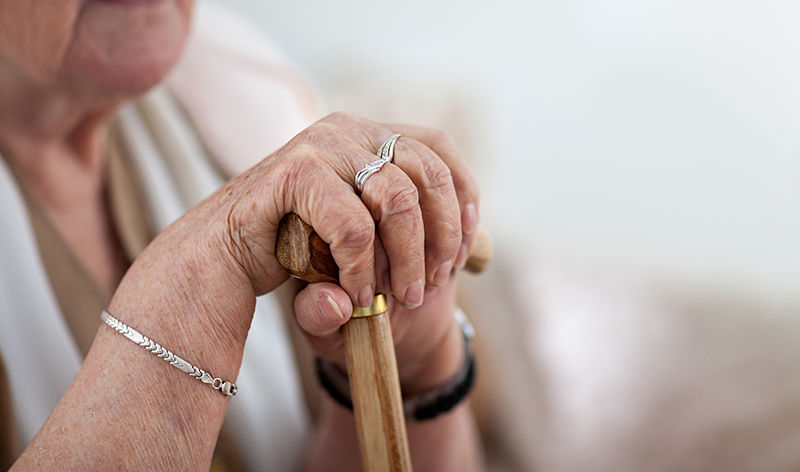It seems odd, even a bit repulsive, when we encounter tales of elderly men running after women who are young enough to be their granddaughters. The wheelchair-bound billionaire oil tycoon J. Howard Marshall was 89 years old when he married the 26-year-old Anna Nicole Smith. He had met the Playboy model and reality TV star in a strip club. Anna insisted that she really did love the old man, and wasn’t in it for the money.
With age should come wisdom. It’s appropriate and fitting for older men to leave behind their former ways, and no longer live and act like college frat boys. It’s right to expect growth in self-control as we mature, and to expect a more reflective and sober approach to life. Growing old invariably offers us the opportunity to redirect our focus, and as our body weakens, our mind and soul can be drawn to consider matters we may have previously avoided, like death and that which awaits us beyond death’s threshold. Our later years can powerfully provoke us to come to terms with our destiny and with higher truths.
In a recent column, Father Ron Rolheiser, quoting James Hillman, speaks to the graces that aging and infirmity can bring our way:
“Why have God and nature so structured things that as we age and mature and are finally more in control of our lives, our bodies begin to fall apart, and we need a bevy of doctors and medicines to keep functioning? Is there some wisdom in the very DNA of the life process that mandates the breakdown of physical health in late life? Hillman says, yes. There’s an innate wisdom in the process of aging and dying: the best wines have to be aged in cracked old barrels. The breakdown of our bodies deepens, softens, and matures the soul.”
I once overheard a hospital nurse chatting with one of her patients and was caught a bit off guard when she nonchalantly declared, with a little twinkle in her eye, "...when we get to be over 40, who doesn't have hemorrhoids?"
The comment, I thought, reflected a healthy, positive attitude toward aging and infirmity. Unavoidably, our bodies decline. Our strength wanes. We get hemorrhoids and warts and cancers and high blood pressure and male pattern balding.
In the midst of it all, we can accept our lot with grace and gratitude. A serene acceptance of our struggles, and even of the specific death that awaits us, is surely a great virtue.
But aging gracefully is not something many of us tend to do well. We resist the idea. We may cling to the fantasy of eternal youth. Some in our society even push the notion that we shouldn’t have to put up with the challenges of infirmity, and instead ought to receive help from the medical system so we can beat a hasty retreat to the exit. By pushing for physician-assisted suicide, they encourage us to despise the good of our own lives and to reject the graces that arise from our struggles by choosing to ingest any of a number of doctor-prescribed poisons.
On the other hand, by embracing our particular path into death, and by offering up our trials, we acquire a poise of soul and human maturity that orients us towards our destiny, a destiny in the hereafter that so many seem largely oblivious to. By letting our infirmities existentially speak to us, and coming to realize how true it is that we have no permanent dwelling here, we begin to grapple with that mysterious truth that heaven and home are synonymous.
Aging gracefully also involves recognizing and accepting the shortening of the time ahead of us and the lengthening of the time behind us. Even as we achieve a much-sought independence in our lives, we begin to cycle back towards a renewed dependence on others, on caregivers, family and the community, and we may even come to the realization that our own mind will have to be surrendered if dementia comes our way. All of this can instruct us, if we accept it with grace, in the wisdom of relinquishing our own willfulness once again like little children, and returning to a humble framework of interdependence in our shared destiny with others and with God.
Rev. Tadeusz Pacholczyk, Ph.D. earned his doctorate in neuroscience from Yale and did post-doctoral work at Harvard. He is a priest of the diocese of Fall River, MA, and serves as the Director of Education at The National Catholic Bioethics Center in Philadelphia. See www.ncbcenter.org

